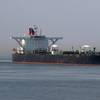The U.S. Court of Appeals for the First Circuit ruled that the owner of a waterfront facility used for offloading petroleum could not recover costs of improvements to its fire suppression system because it did not prove that the improvements were required by regulation. Under its contract with nearby oil terminals to which it was connected by pipelines, costs for compliance with city, state, or federal regulations applicable to operation of the pipelines was to be borne by the oil terminals. Meetings held at the Coast Guard’s Marine Safety Office with the waterfront facility and federal, state, and local officials raised concerns about the insufficiency of the fire suppression system at the facility. The local fire department, relying in large part on a provision of the National Fire Protection Association (NFPA) Code, convinced the facility to upgrade its fire suppression system. The facility then brought suit against the oil terminals to recoup the cost of the upgrade. At an unnecessarily complicated trial, the facility relied primarily on the NFPA Code to sustain its position. The court held that the facility failed to prove that its costs were required by a federal, state, or local regulation and denied recovery. It is unclear why the facility did not pursue at trial applicable Coast Guard requirements for fire safety at waterfront facilities. A concurring opinion contains a lengthy discussion of safety codes and related issues. Getty Petroleum Marketing, Inc. v. Capital Terminal Company, No. 03-2324 (1st Cir., December 10, 2004). – HK Law
Subscribe for
Maritime Reporter E-News
Maritime Reporter E-News is the maritime industry's largest circulation and most authoritative ENews Service, delivered to your Email five times per week










